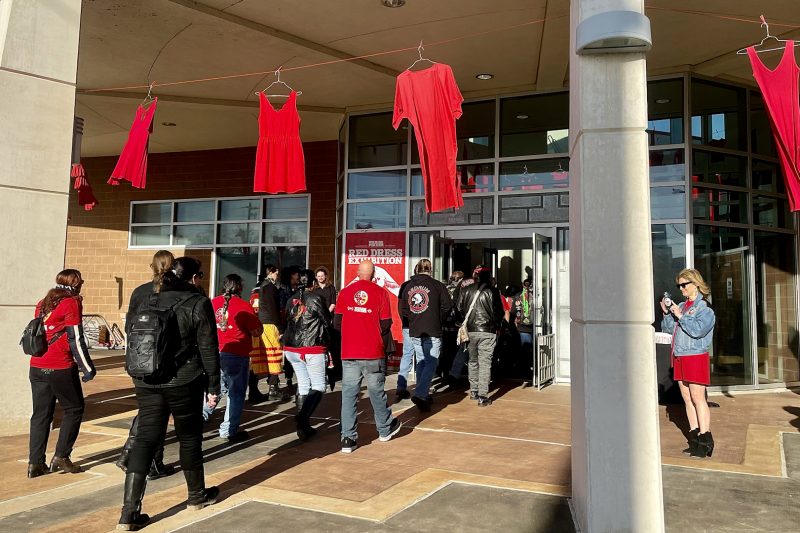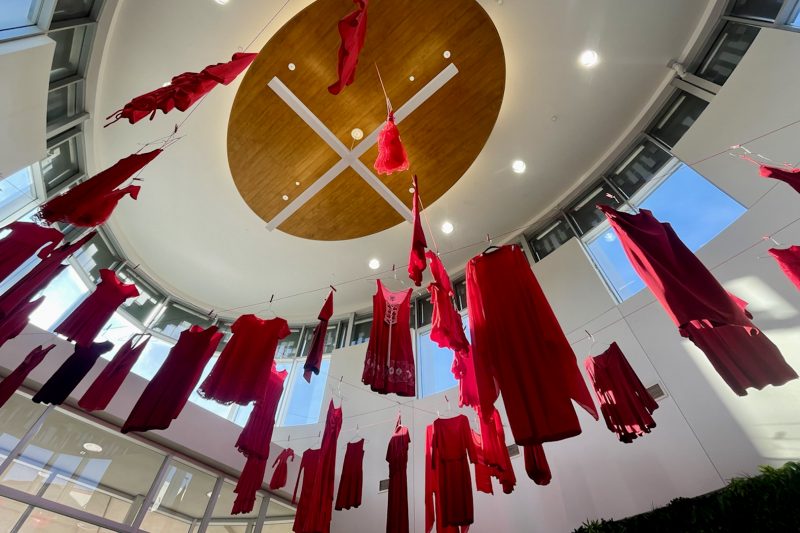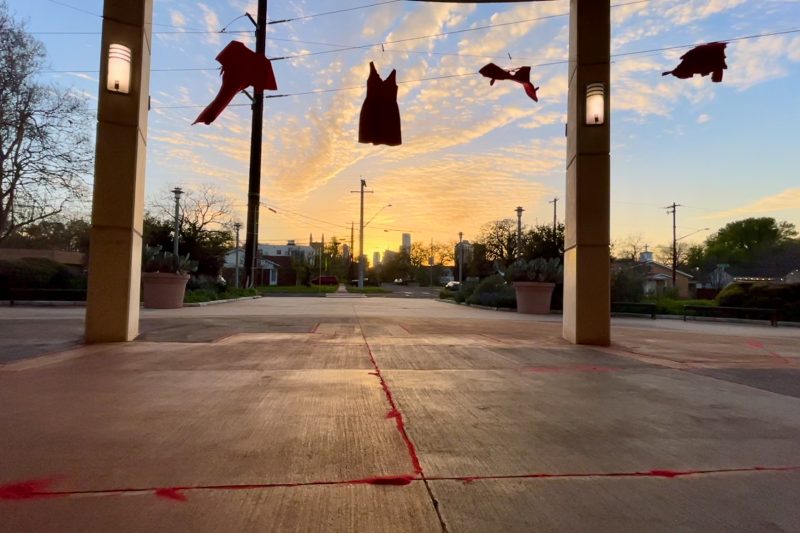The Red Dress Exhibition Illuminates a National Crisis Among Indigenous Women
By Tanya Velazquez
Reporting Texas TV
AUSTIN, Texas – Over 20 indigenous Texans revved motorcycles Saturday outside the George Washington Carver Museum, kicking off the Red Dress Exhibition.
More than 30 red dresses suspended from the lobby ceiling highlighted a fatal issue.
“Each one of those dresses represents the person who would be wearing that dress if they were here today… you look at the different sizes [and] styles, and that identifies the murdered and missing indigenous women,” said Darlene Gomez, who grew up two miles outside of the Jicarilla Apache Indian Reservation in New Mexico.
She is now the general counsel for Medicine Wheel Ride, a collective of indigenous women motorcyclists who boost awareness of an ongoing national crisis of disproportionately high rates of violence toward indigenous women in the United States. The riders collaborated with the Red Sand Project to launch the exhibit, which complements their main project – a documentary film called “We Ride for Her” which premiered Sunday at SXSW.

Medicine Wheel Ride members enter the George Washington Carver Museum after biking 15 miles for the exhibit’s opening in Austin, Texas, on March 9, 2024. (Tanya Velazquez/Reporting Texas TV)
Both displays exemplify a common tribulation among the community as more than four out of five indigenous women experience violence in their lifetime. The U.S. Department of Justice estimates that less than half of violent victimizations against indigenous women are reported to authorities, which means these disproportionately high cases are significantly underestimated.
Prairie Rose Seminole is a co-director and co-producer of “We Ride for Her” and a member of three affiliated tribes: the Arikara, Northern Cheyenne and Lakota Nations in North Dakota.
She has personal ties to the film and exhibition.
“I was a young person when my Aunt Charlene was killed, and her case went cold. Killed on a gravel road on the reservation in an area where law enforcement just didn’t really care about Native people,” Seminole said.

Red dresses hang inside the Carver Museum lobby to commemorate the souls of missing and murdered indigenous women, girls and 2spirit individuals. (Tanya Velazquez/Reporting Texas TV)
Gomez said she also witnessed similar tragedies.
“My journey on the murdered, missing indigenous women trail started in 2001 when my childhood friend Melissa Motaya went missing from the Jicarilla Apache Indian Reservation in Dulce, New Mexico,” Gomez said. “She is currently still missing.”
She said the high rates of violence are the result of systemic failures in the country.
“When you go missing, law enforcement will very rarely look for you,” Gomez said.
Lorna Cuny, a co-founder of Medicine Wheel Ride, said a lack of governmental support makes it difficult to provide resources for this vulnerable population and pressures civil society to take action. More than 4,000 missing and murdered cases go unsolved, due to a lack of investigative resources, according to the United States Bureau of Indian Affairs.
“It’s mostly grassroots organizations who are the ones that are doing the work,” Cuny said. “We want to make a difference.”
The Red Dress organizers will continue to fight for a more equitable future by spreading empathy and awareness.
“Remember that this exhibit is an example that you and I are the same,” Gomez said. “These victims are very much like your mothers, your sisters, your aunties, and that we all deserve justice.”

Red dresses hang outside the Carver Museum in memory of missing and murdered indigenous women, girls and 2spirit individuals. (Tanya Velazquez/Reporting Texas TV)